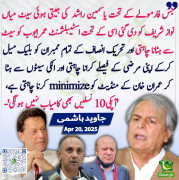Religion, like many aspects of human life, can influence both positively and negatively, depending on how it is interpreted and practiced. For some individuals and nations, religion provides a strong moral foundation, a sense of community, and a framework for understanding the world, which can drive progress, inspire social justice, and promote ethical behaviour.
On the other hand, when religion is rigidly interpreted or used to justify exclusion, intolerance, or resistance to change, it can become an obstacle to progress. For example, if religious beliefs are used to oppose scientific advancements, suppress individual freedoms, or justify discrimination, they can hinder social and technological development.
Ultimately, whether religion acts as an obstacle or a catalyst for progress depends on the context in which it is practiced and the ways in which its principles are applied to the challenges and opportunities of the modern world. It is not inherently an obstacle or an aid to progress but can be either, depending on the attitudes and actions of those who practice it.
On the other hand, when religion is rigidly interpreted or used to justify exclusion, intolerance, or resistance to change, it can become an obstacle to progress. For example, if religious beliefs are used to oppose scientific advancements, suppress individual freedoms, or justify discrimination, they can hinder social and technological development.
Ultimately, whether religion acts as an obstacle or a catalyst for progress depends on the context in which it is practiced and the ways in which its principles are applied to the challenges and opportunities of the modern world. It is not inherently an obstacle or an aid to progress but can be either, depending on the attitudes and actions of those who practice it.






































